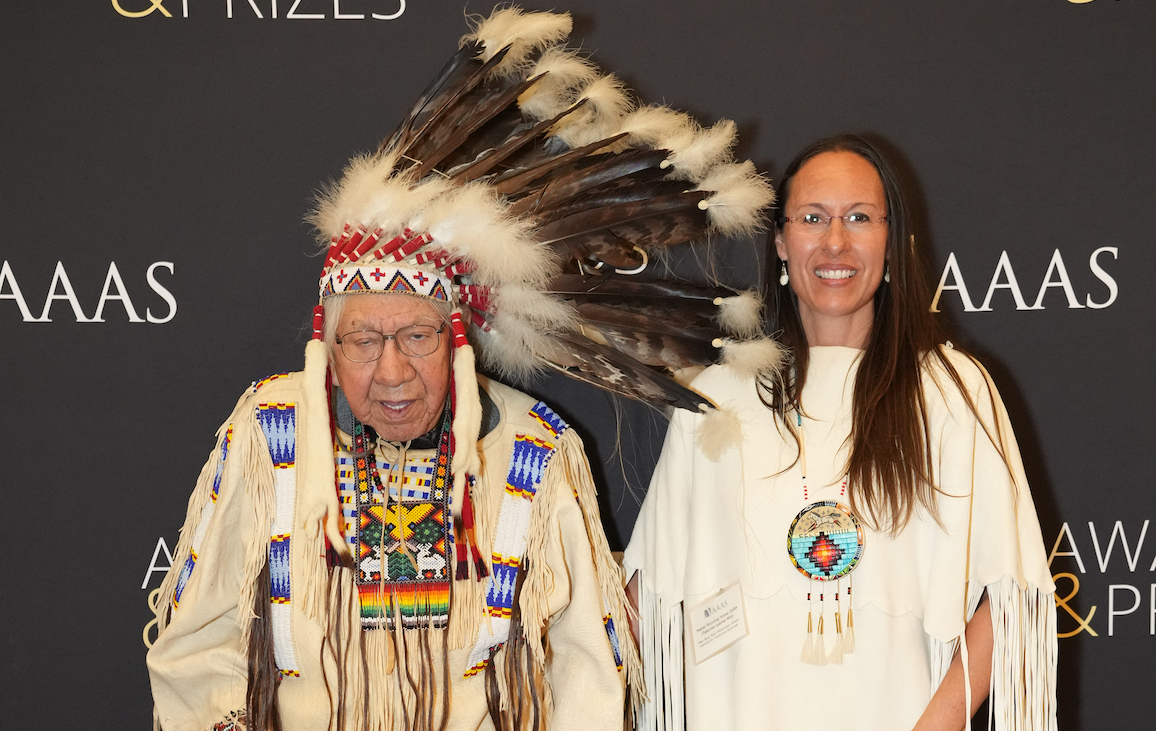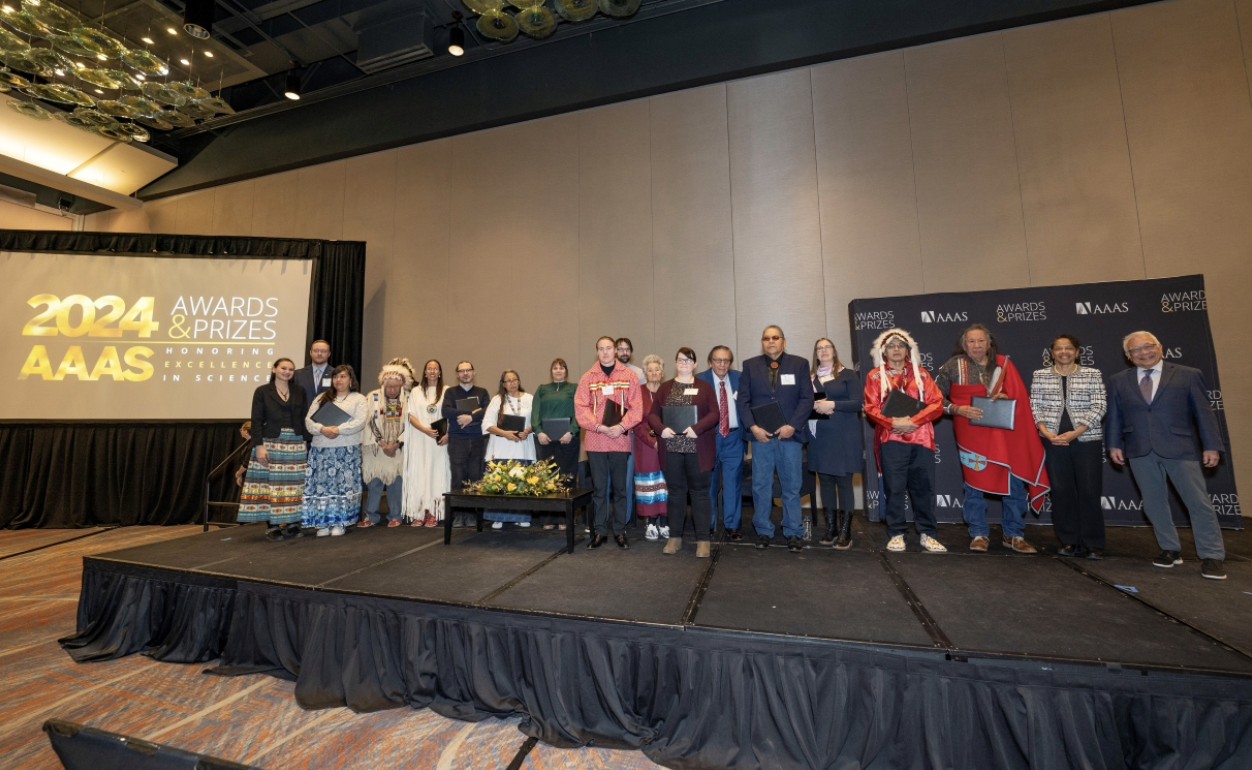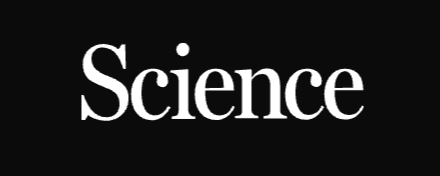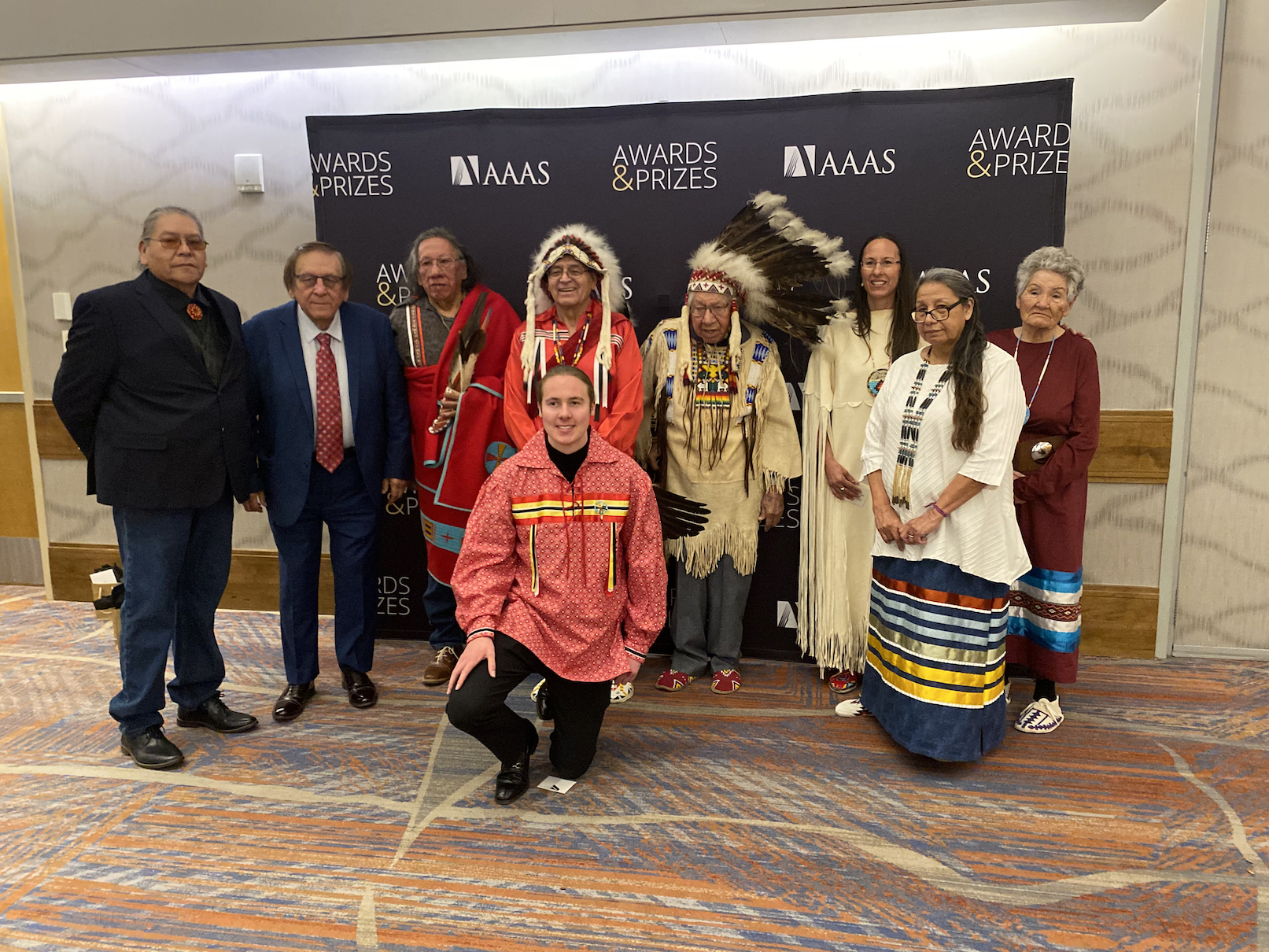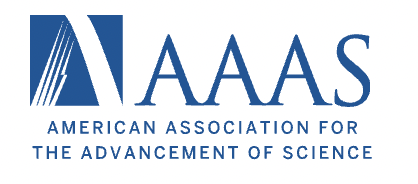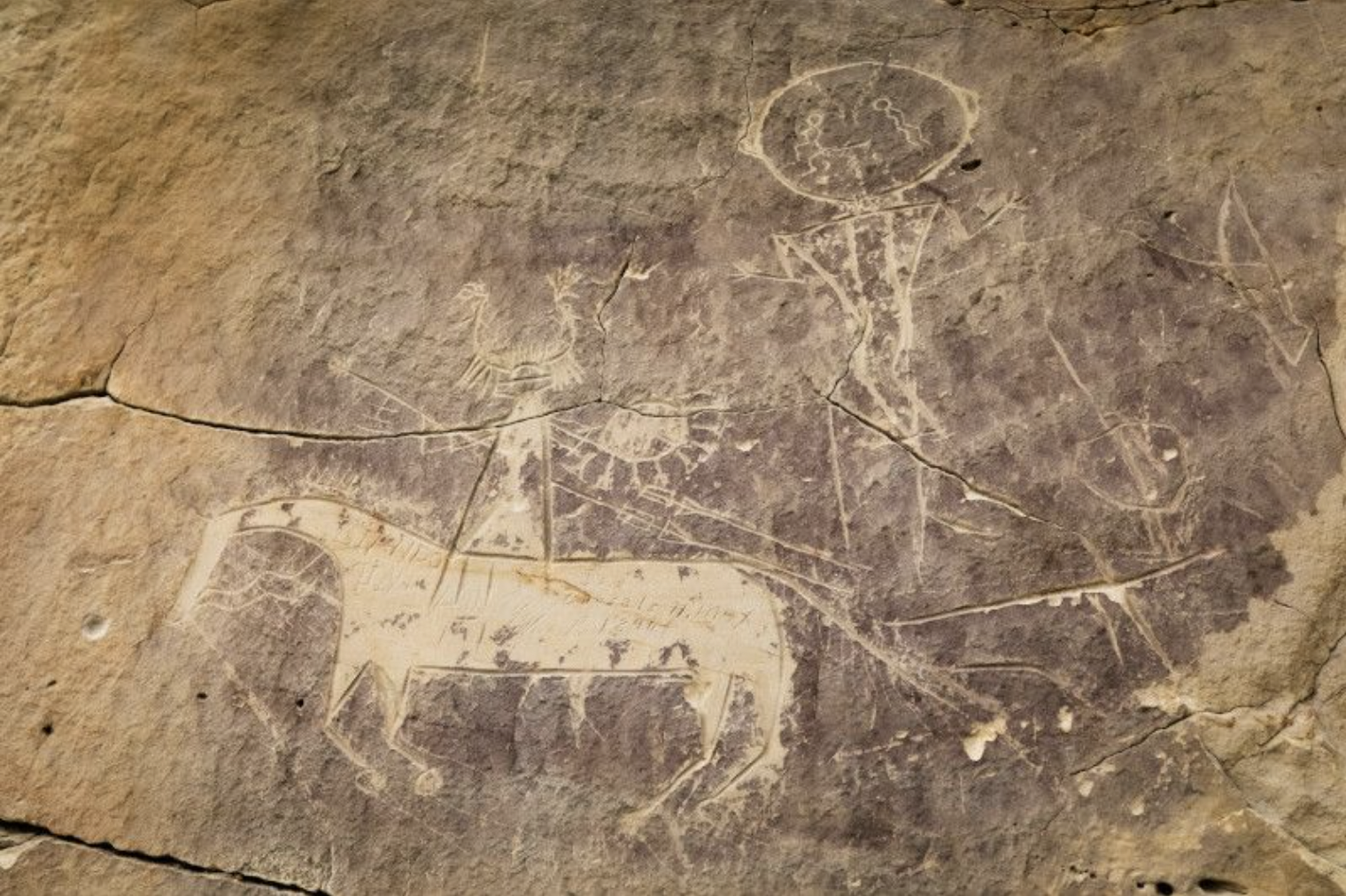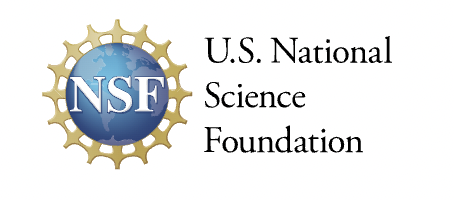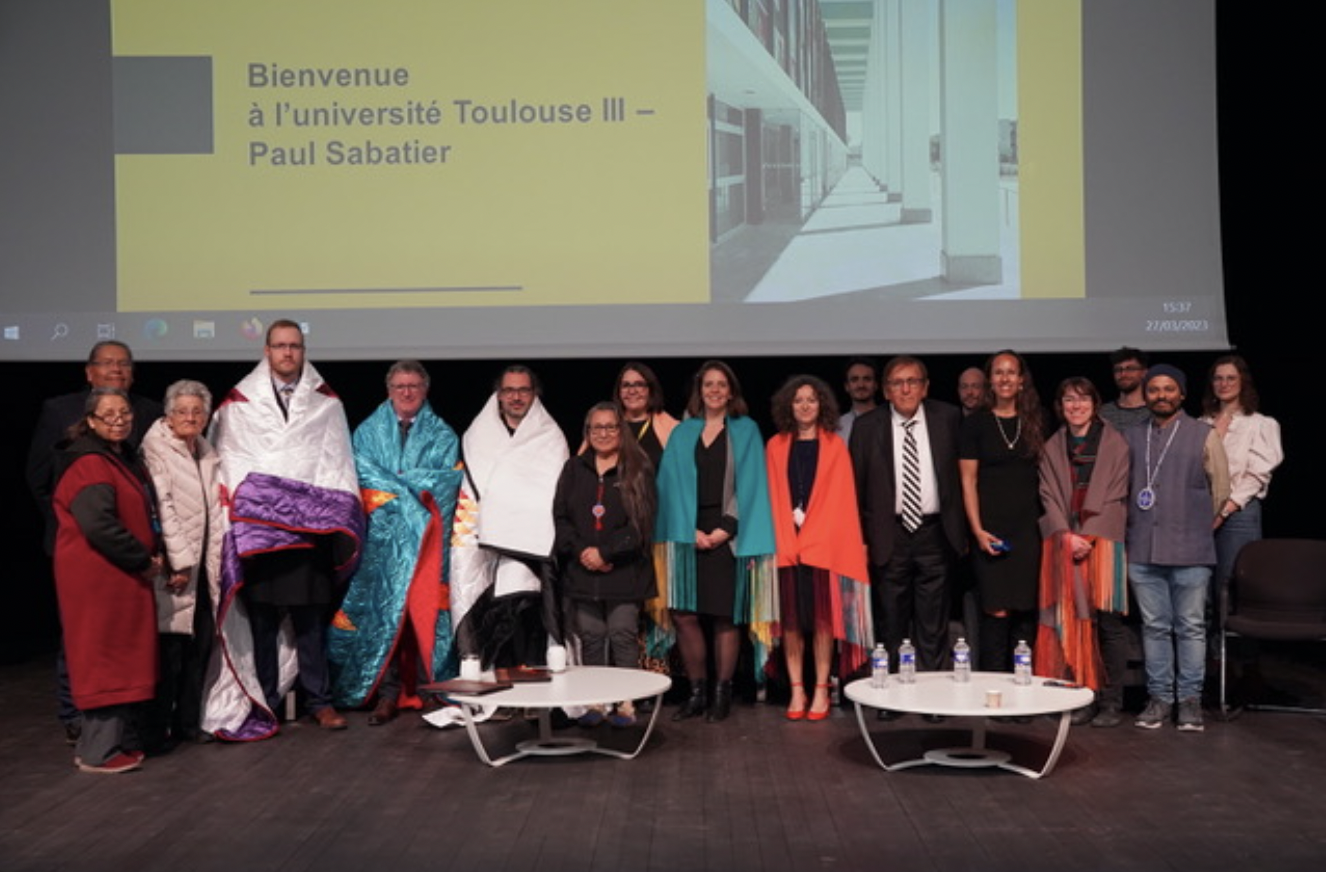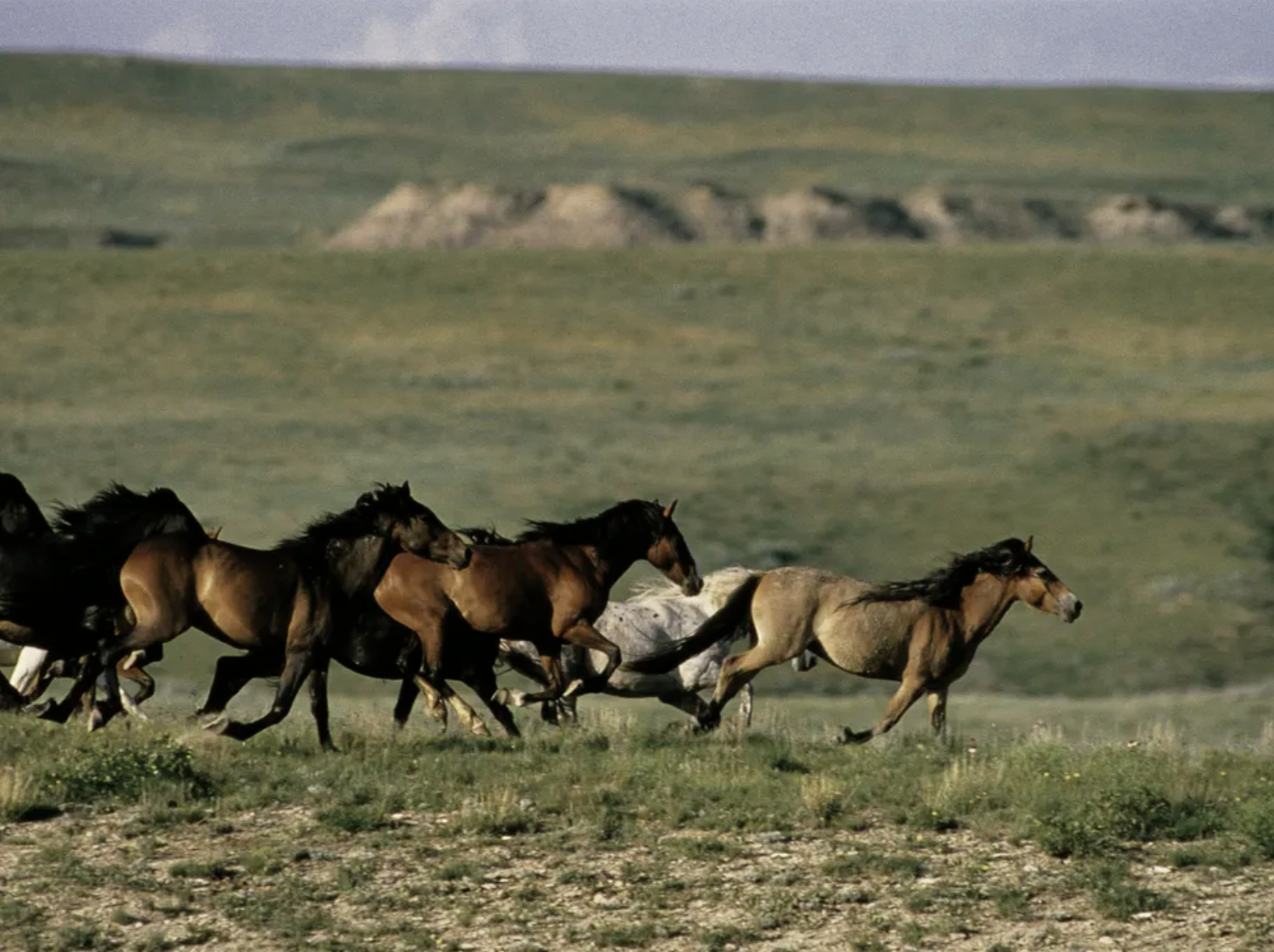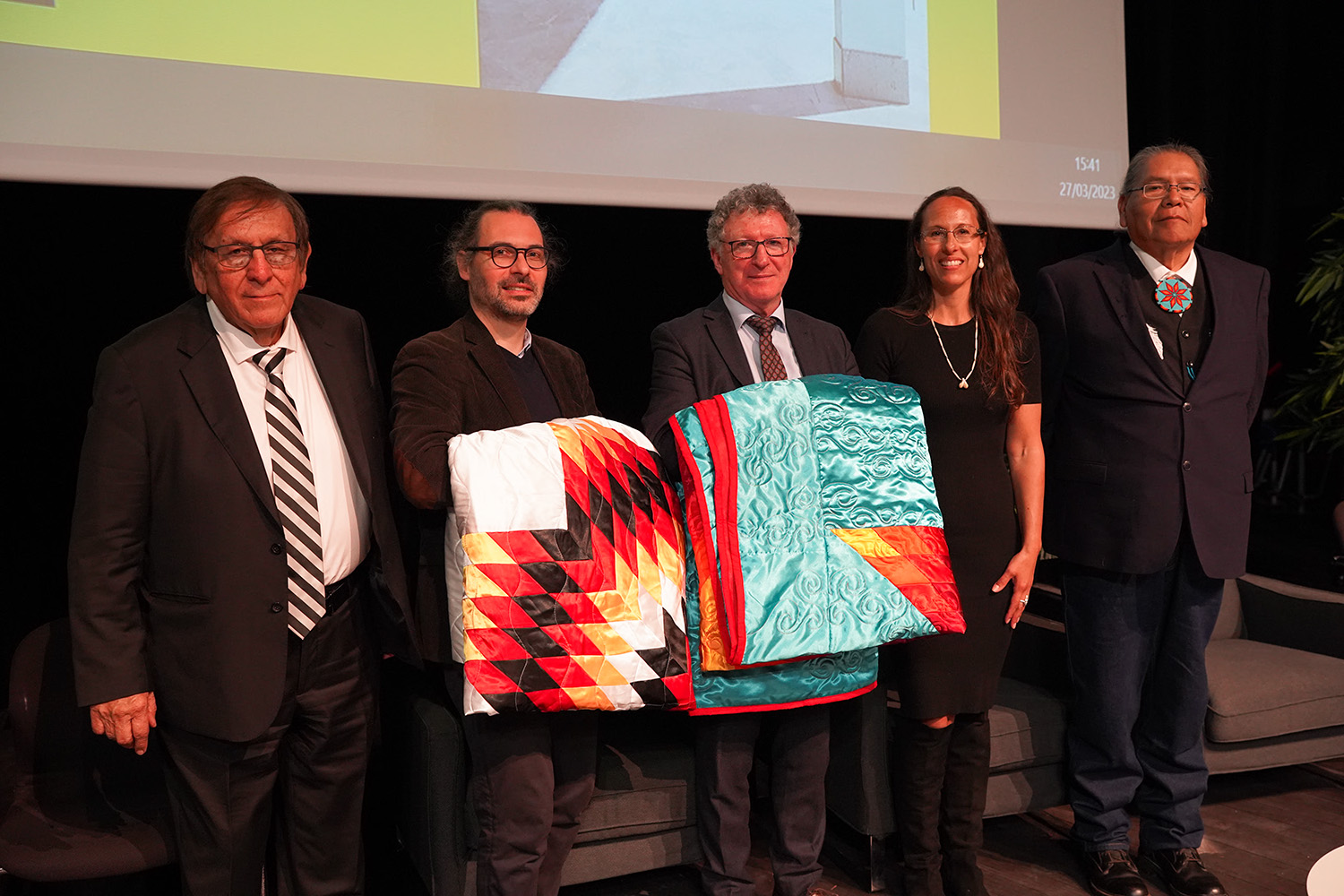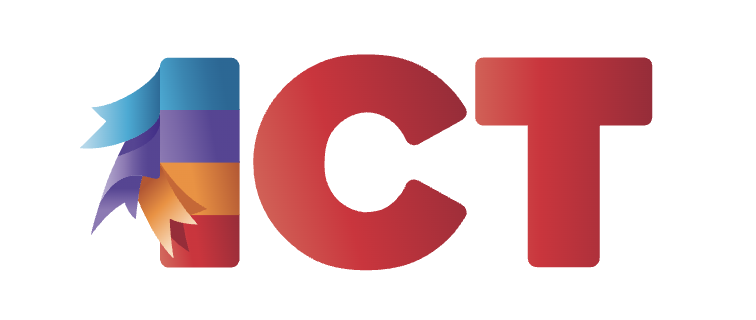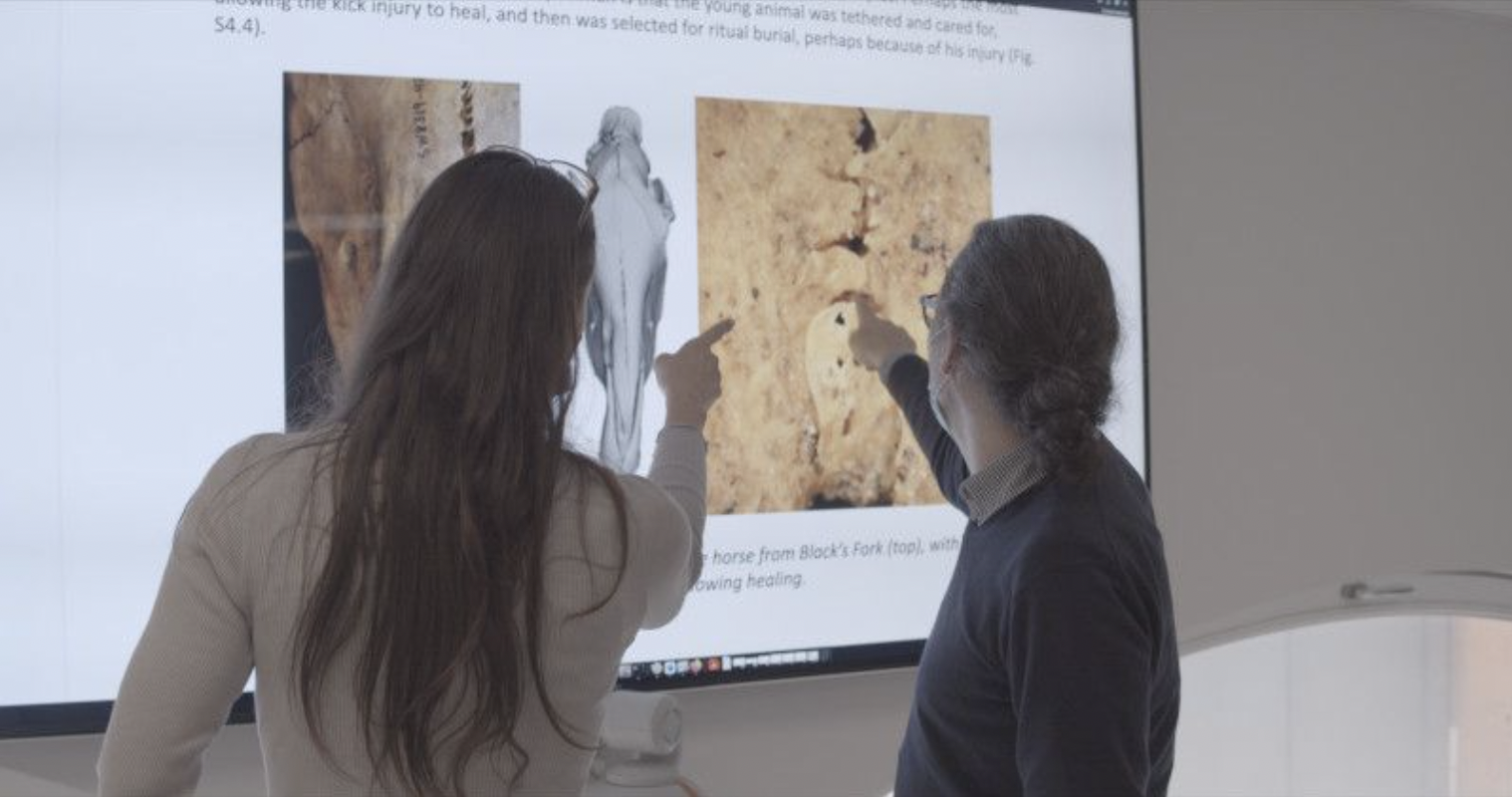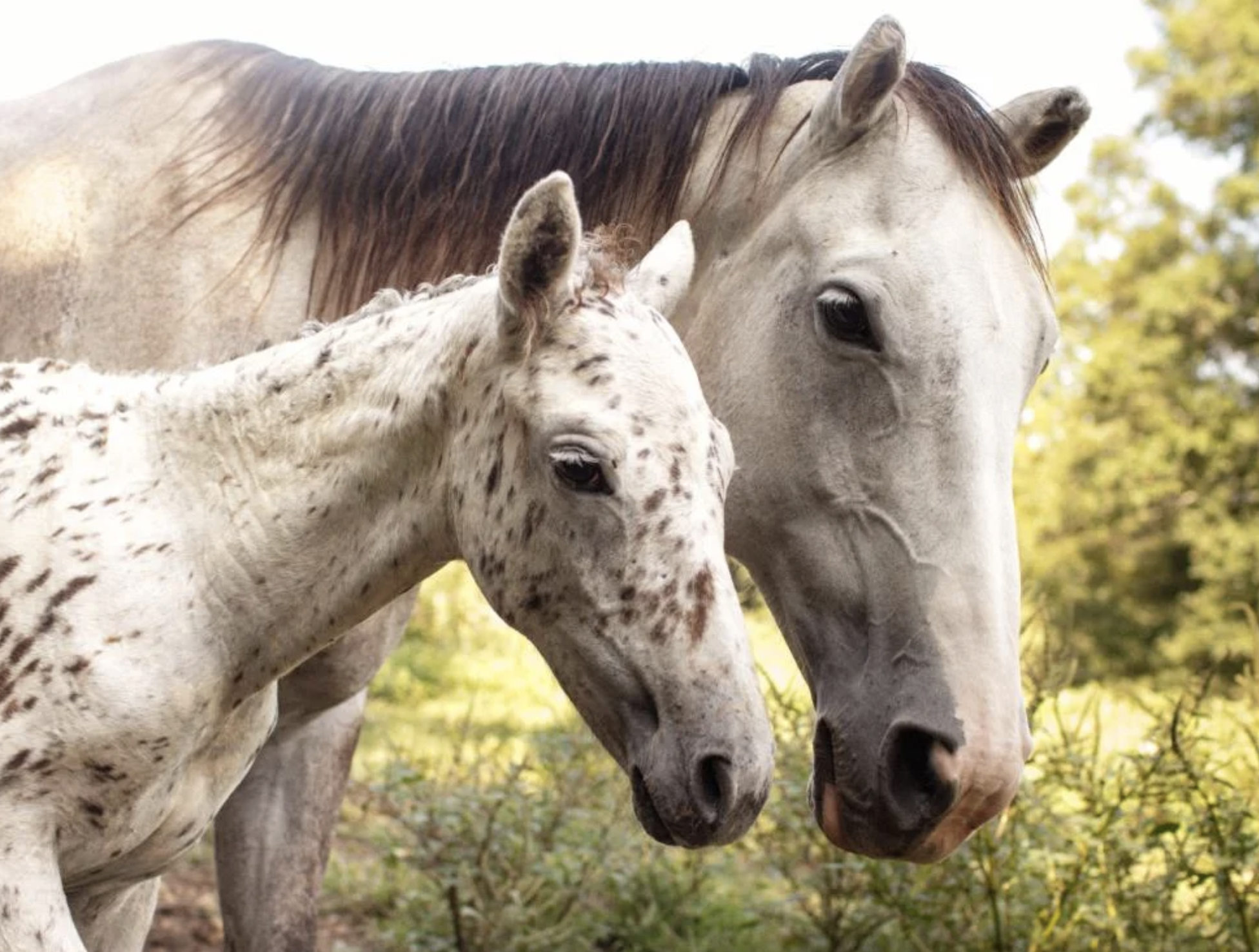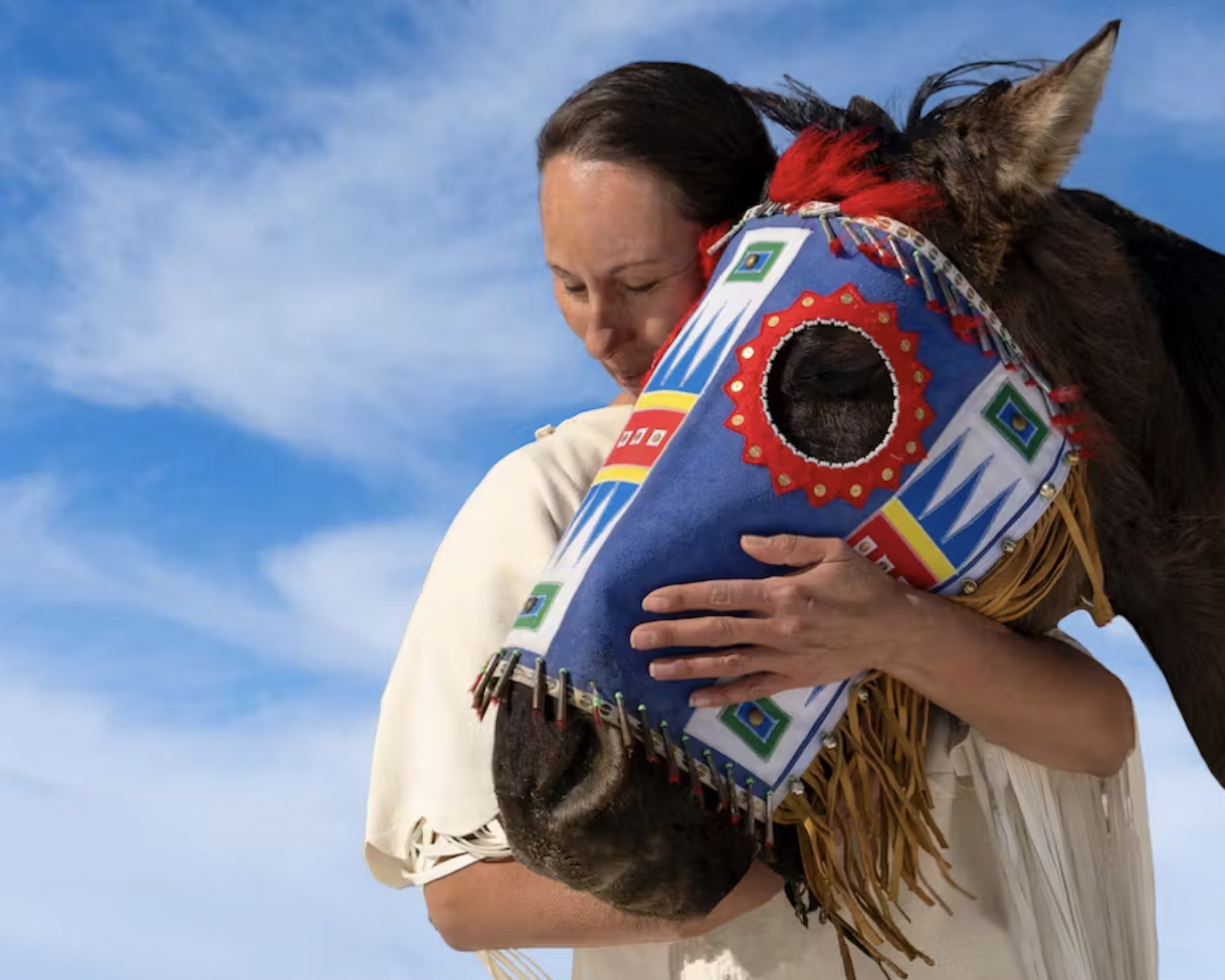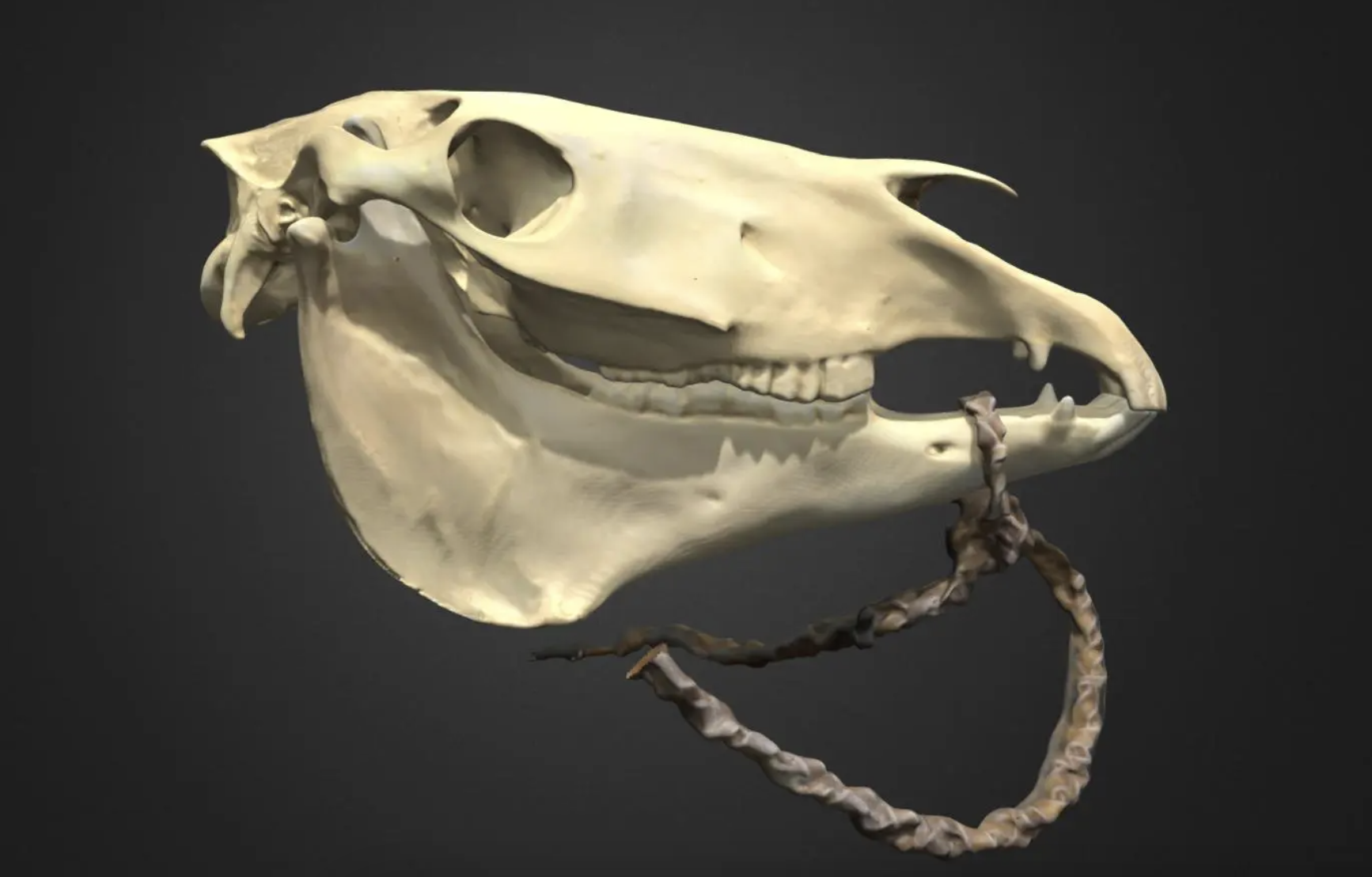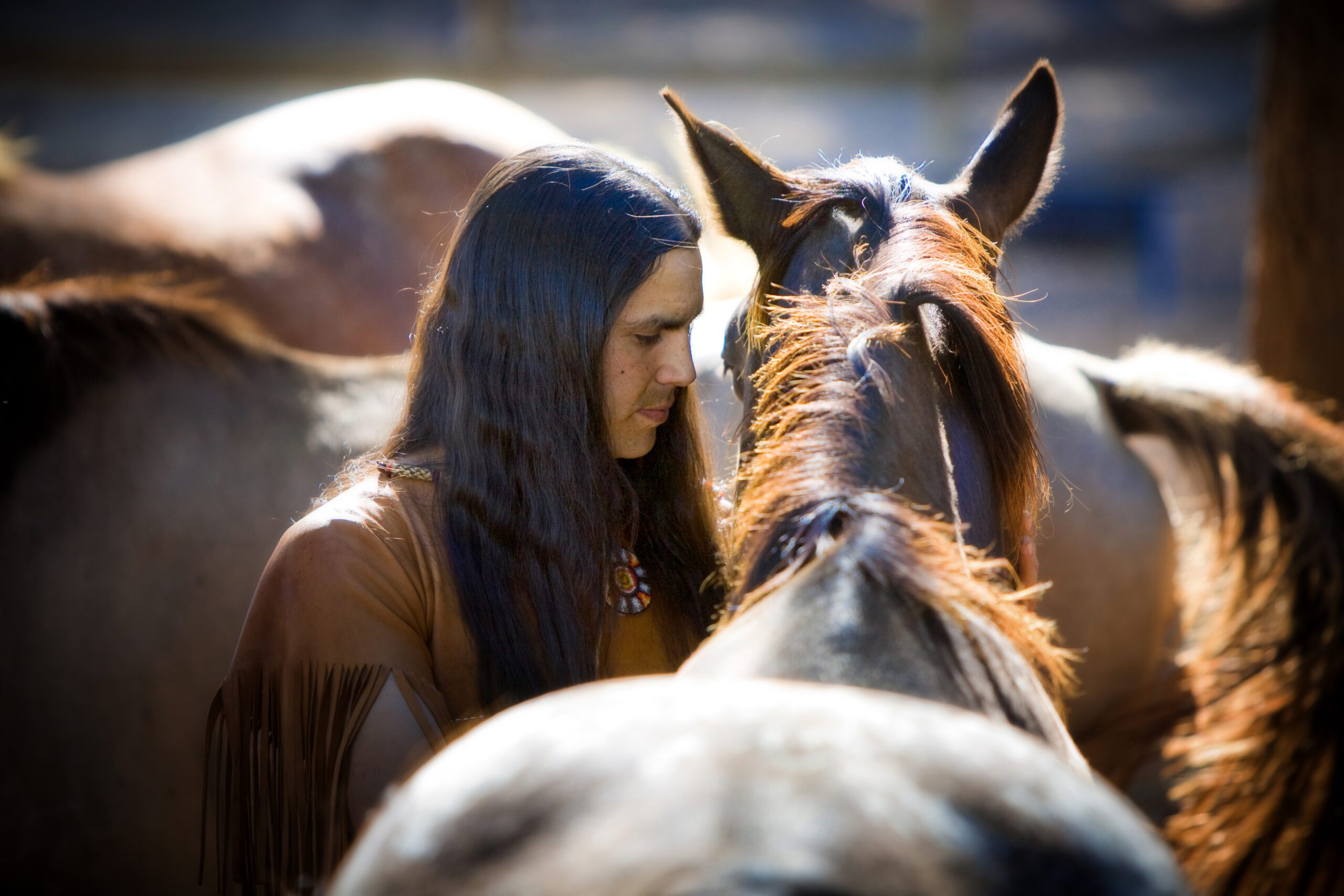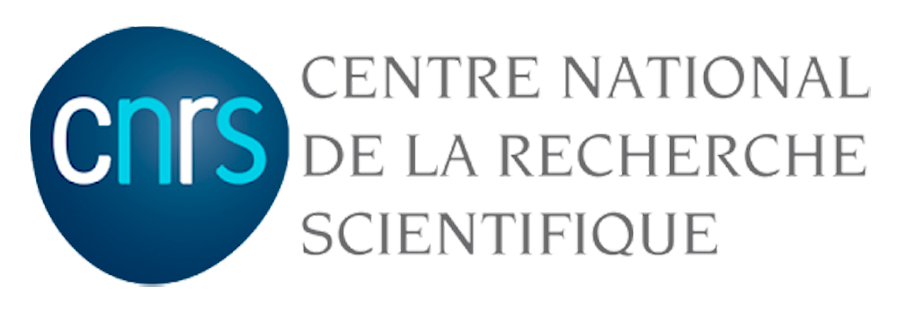Selected Press
Article
May 21, 2025
Ancient Horse Migration Patterns Show a Way Forward for Protecting Life
A new study, combining Indigenous science and cutting-edge ancient DNA and isotope analysis, reveals that Late Pleistocene horses moved back and forth between Eurasia and North America between 50,000 and 19,000 years ago in order to survive and thrive as environmental conditions shifted…“We understand the Horse Nation to be a keystone species that, together with the other life forms with which it shares relationality, brings balance to the ecosystem,” says Chief Harold Left Heron, a traditional Lakota scientist, knowledge keeper and leader for the Lakota Nation…
Article
May 16, 2025
Lost world of Ice Age horses suggests we’re getting conservation wrong
Ancient migration between wild horse populations in America and Asia show how ecosystems adapt to survive cataclysmic change — strategies that modern forms of conservation may unintentionally hinder…Their main conclusion: When the going gets tough, tough ecosystems get going — carried along by keystone species like horses, whose willingness to explore new terrain and interbreed with other horse populations has spread their DNA from Alaska to Western Europe…
Article
Mar 06, 2024
Horse Nation wins Science Prize
On February 16, 2024 a Lakota led interdisciplinary team of more than 80 Indigenous and western scientists from around the globe were awarded the 2024 Newcomb Cleveland Prize. The prize was given at the annual meeting of the American Association for the Advancement of Science (AAAS) and is the oldest and most prestigious award given by the organization…
Article
Feb 18, 2024
Collaboration between Indigenous and Western scientists honored as year’s outstanding Science paper
The Newcomb Cleveland Prize is the AAAS’s oldest prize, established in 1923, and is awarded annually for “an outstanding paper” published in Science. “12,000 papers are submitted every year to Science,” Science Editor-in-Chief Holden Thorp explained during the award ceremony. “1500 are sent out for review, 700 are published, and 10 are nominated for the Newcomb Cleveland Prize.” Only one wins…
Article
Feb 13, 2024
AAAS Announces 2024 Award Recipients
The American Association for the Advancement of Science has announced the 2024 winners of seven awards that recognize scientists, engineers, innovators and public servants for their contributions to science and society… An interdisciplinary team of more than 80 researchers led by Indigenous scholars has received the 2024 AAAS Newcomb Cleveland Prize for an article [in the journal Science] that showcased findings about the rapid spread of horses through Indigenous societies in North America… Judges praised the paper not only for its significant breadth of scientific methods and authorship but also for the leadership of Indigenous scientists and knowledge keepers… “Walking the earth as Lakota is to protect, sustain and advocate for all life. This global collaboration and those to come are what is necessary for ourselves and all Peoples to protect their traditional lands, relations and life ways for the sustainability of Grandmother Earth and all life. The time is upon us,” said Chief Joe American Horse, co-author, Oceti Sakowin knowledge keeper and Indigenous scientist…
Article
May 5, 2023
Horses part of Indigenous cultures longer than Western historians thought
An international study, funded in part by the U.S. National Science Foundation, found that horses have been present on the Great Plains of North America since as early as the 16th century. The study included researchers from the University of Colorado Boulder, the Lakota Nation, Comanche Nation and Pawnee Nation, as well as researchers from schools across 15 countries, spanning over five continents…
Article
Apr 30, 2023
Indigenous & Western Scientists Blaze a New Path Forward alongside Šungwakaŋ, the Horse Nation
On March 30, 2023, the journal Science unveiled the collaborative work of an international team that united 87 scientists across 66 institutions around the world to begin to refine the history of the horse in the Americas – this time with Indigenous scientists and knowledge keepers leading the way. This work, which embeds cross-disciplinary and cross-cultural research between western and traditional Indigenous science, is a first step in a long-term collaboration…
Article
Apr 3, 2023
New Research Rewrites the History of American Horses
The narrative about horses in North America told in several written histories is due for an update, according to a study published last week in the journal Science. After examining archaeological remains of horses, researchers suggest Indigenous peoples had spread the animals through the American West by the first half of the 1600s—before they encountered Europeans…
Article
Apr 3, 2023
Indigenous scientists honored in France for horse research
A recent scientific publication co-authored by both traditional Indigenous scientists and Western scientists confirms Indigenous narratives about the horse. These findings disprove the accepted and dominant narrative that northern Native Nations acquired horses only after the Pueblo Revolt of 1680. For centuries, the dominant narrative…
Article
Mar 31, 2023
Native Americans used horses far earlier than historians had believed
Native American communities rode, cared for and lived alongside horses nearly a century earlier than European records suggest, a new study has found. The study, published in the journal Science, shatters the conventional narrative of how — and when — horses came into the Indigenous communities of the American West…
Article
Mar 30, 2023
Landmark study on history of horses in American West relies on Indigenous knowledge
A team of international researchers has dug into archaeological records, DNA evidence and Indigenous oral traditions to paint what might be the most exhaustive history of early horses in North America to date. The group’s findings show that these beasts of burden may have spread throughout the American West much faster and earlier than many European accounts have suggested. The researchers, including several scientists from CU Boulder, published their findings today in the journal Science…
Article
Mar 30, 2023
Archaeology and genomics together with Indigenous knowledge revise the human-horse story in the American West
Few places in the world are more closely linked with horses in the popular imagination than the Great Plains of North America. Romanticized stories of cowboys and the Wild West figure prominently in popular culture, and domestic horses are embedded in everything from place names, like Wild Horse Mesa, to sporting mascots, like the Denver Broncos…
Article
Mar 30, 2023
Horses came to American West by early 1600s, study finds
The horse is symbolic of the American West, but when and how domesticated horses first reached the region has long been a matter of historical debate. A new analysis of horse bones gathered from museums across the Great Plains and northern Rockies has revealed that horses were present in the grasslands by the early 1600s, earlier than many written histories suggest. The timing is significant because it matches up with the oral histories of multiple Indigenous groups that recount their peoples had horses of Spanish descent before Europeans physically arrived in their homelands, perhaps through trading networks…
Article
Mar 30, 2023
The untold history of the horse in the American Plains, a new future for the world
“Horses have been part of us since long before other cultures came to our lands, and we are a part of them,” states Chief Joe American Horse, a leader of the Oglala Lakota Oyate, traditional knowledge keeper, and co-author of the study. In 2018, at the instruction of her elder knowledge keepers and traditional leaders, Dr. Yvette Running Horse Collin contacted contacted Prof Ludovic Orlando, French National Centre for Scientific Research (CNRS) scientist…
Powered by Taku Skan Skan Wasakliyapi, Global Institute for Traditional Sciences © 2023. All rights reserved.






